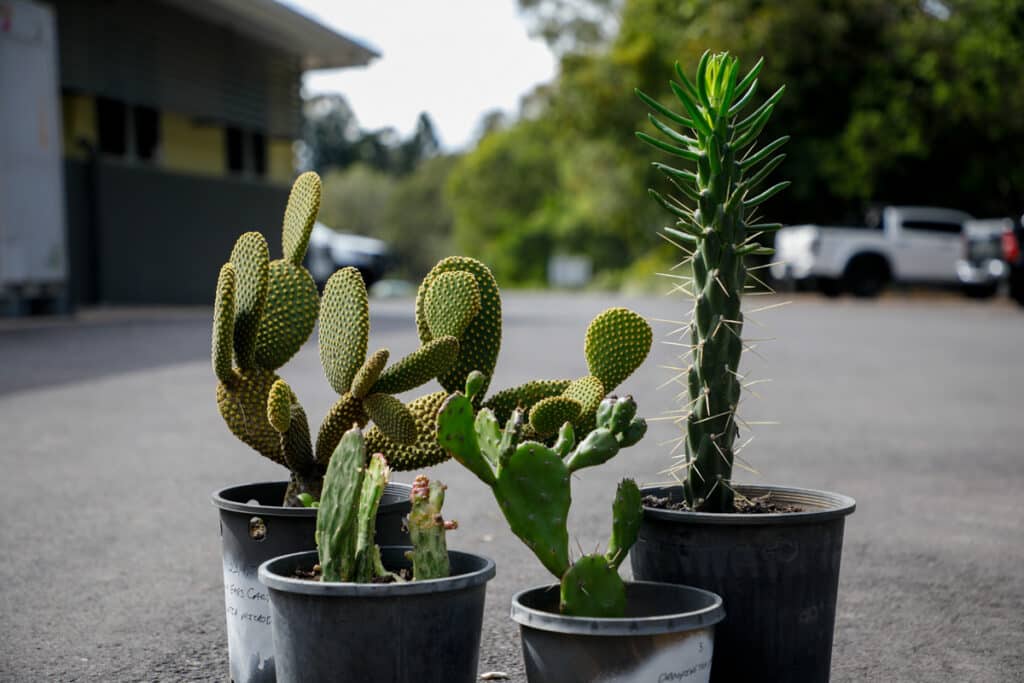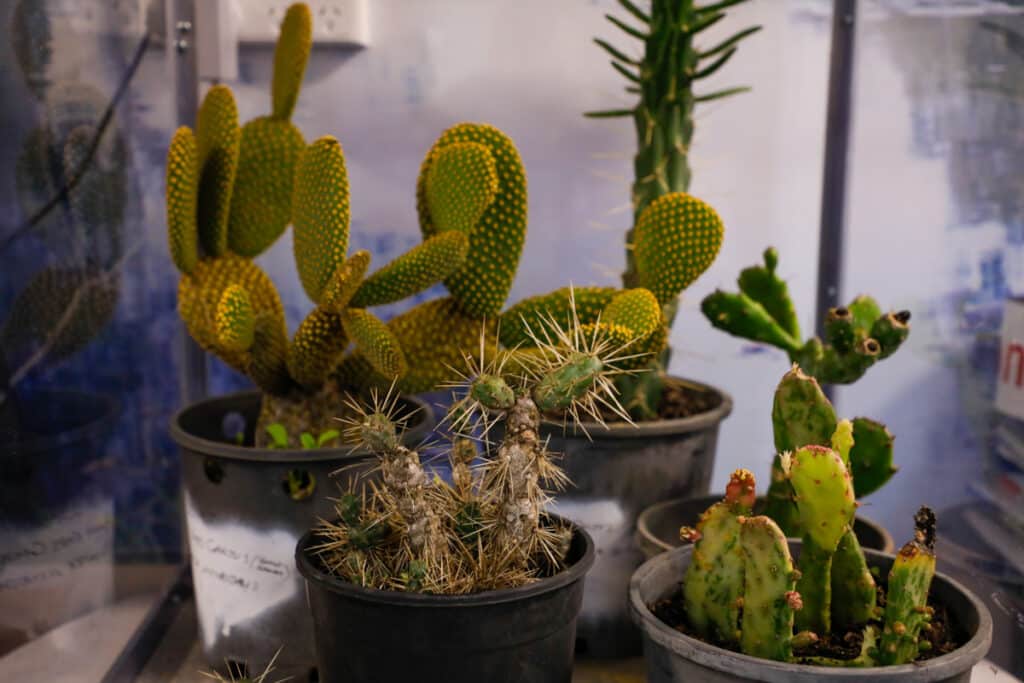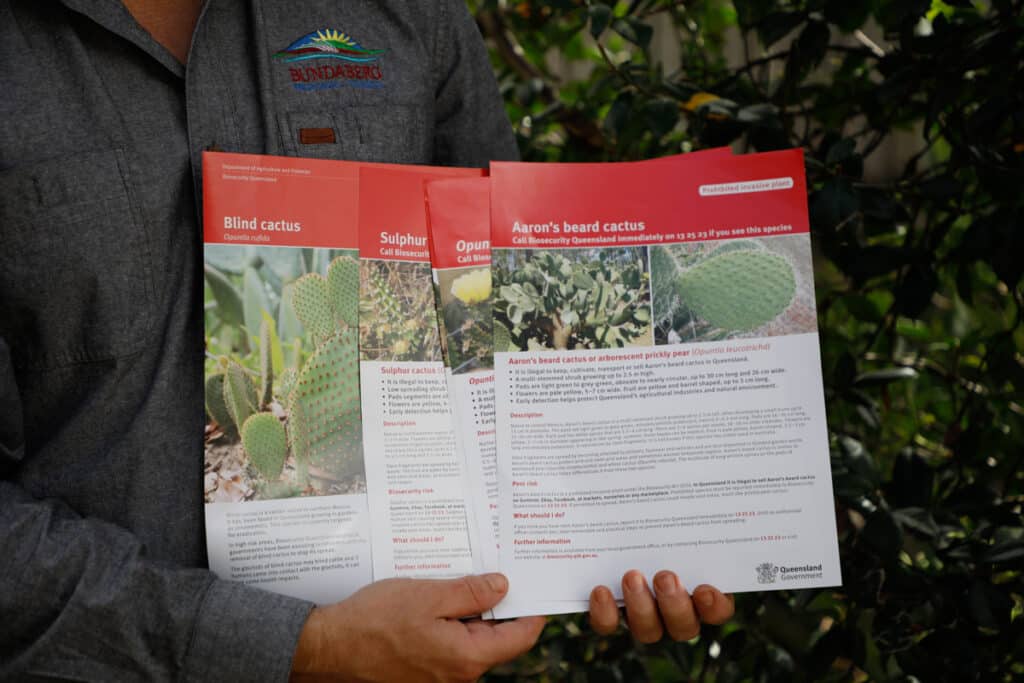
In an effort to combat invasive cacti Bundaberg Regional Council is encouraging residents to check their backyards and front gardens for any signs of the spiky specimens.
Raising community awareness has become a vital component of Council’s ongoing cacti control program, which has seen more than 60 restricted and prohibited plants disposed of in the past six months.
Natural Resources and Environment portfolio spokesperson Cr Jason Bartels said these cacti had been observed in gardens and some even offered for sale at nurseries and markets.
“Queensland’s climate presents ideal growing conditions for cacti but unfortunately, these plants pose significant threats to large tracts of pastoral and agricultural land,” he said
“They also pose an environmental risk to wildlife, and they reduce the aesthetic and recreational use of land and have a direct impact to human safety.”
Cr Bartels said as part of the control program Land Protection Officers were encouraging residents with cacti to contact Council.
“Our Land Protection Officers are happy to meet with residents to help identify cacti and can undertake the physical removal of potted cacti plants or cacti growing in gardens,” he said
“If a resident sees a cactus outside of their yard, but within the Bundaberg Region, they can also contact Council.
“Residents play an important role in reducing the risk of invasive cacti taking hold in our region and by working together we can achieve a stronger more resilient biosecurity system,” he said.
Land Protection Officers are working to improve awareness of invasive cacti through displays at markets, providing free cacti identification factsheets to residents and holding conservations with the community at public events.

What to look out for:
All cactus species in the genera Opuntia, Cylindropuntia and Harrisia, other than Indian fig (Opuntia ficus-indica) are regulated in Queensland.
Additionally, two species of Austrocylindropuntia are also regulated.
The Biosecurity Act 2014 requires everyone to take all reasonable and practical measures to minimise the biosecurity risks associated with invasive plants under their control.
This is called a general biosecurity obligation (GBO).
To find out more information click here.
To report your cacti sighting, contact the Land Protection team by emailing a photo and details to parksadministration@bundaberg.qld.gov.au or phone Council on 1300 883 699.






I was not aware that all cacti were banned! I have many succulents and some cacti. How can I find out if mine are banned in Bundaberg. I find this article alarmist and threatening to residents. More specific information should be provided.
Hi Rosemary, this link is provided in the story and will take you to a factsheet providing specific information: https://www.daf.qld.gov.au/__data/assets/pdf_file/0008/1533941/prohibited-restricted-cacti.pdf
hope you have no mother of millions. takes forever to get rid of that hardy plant.